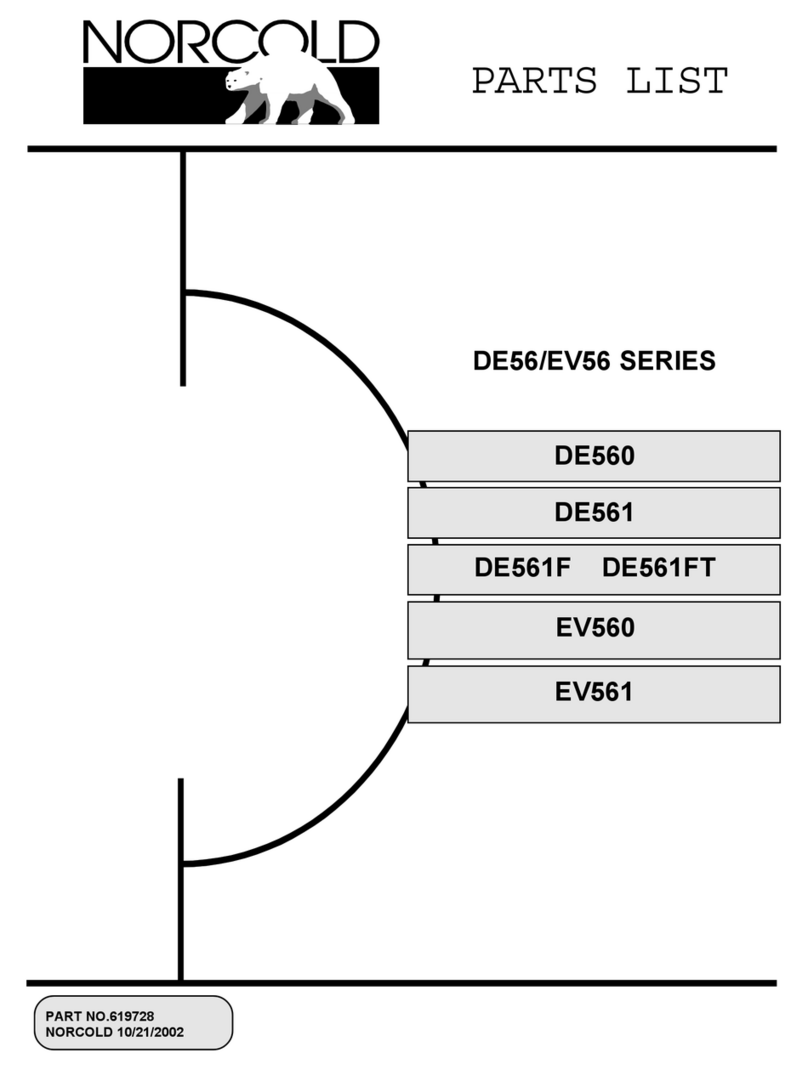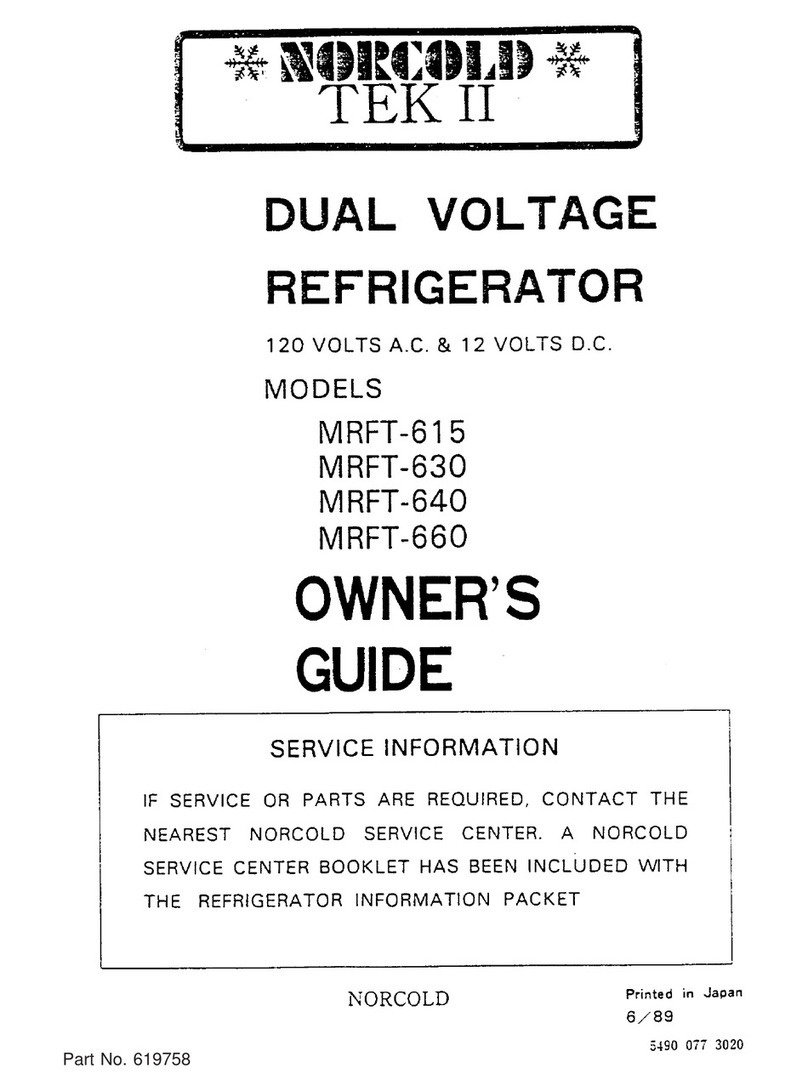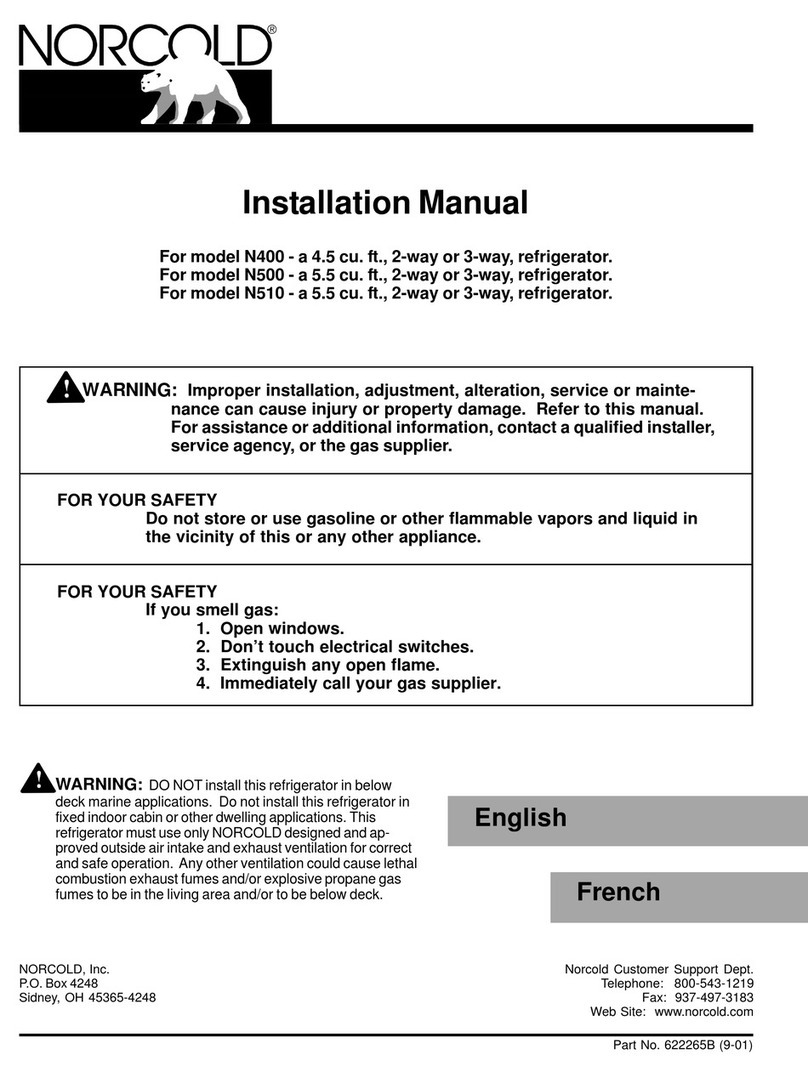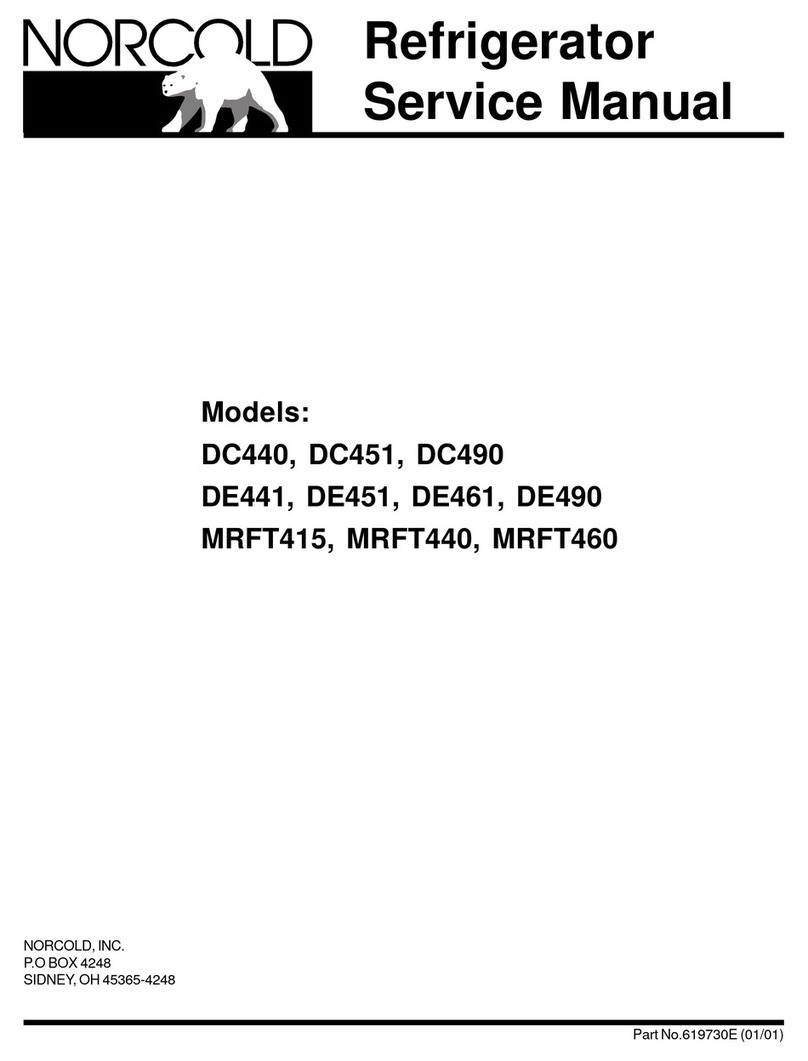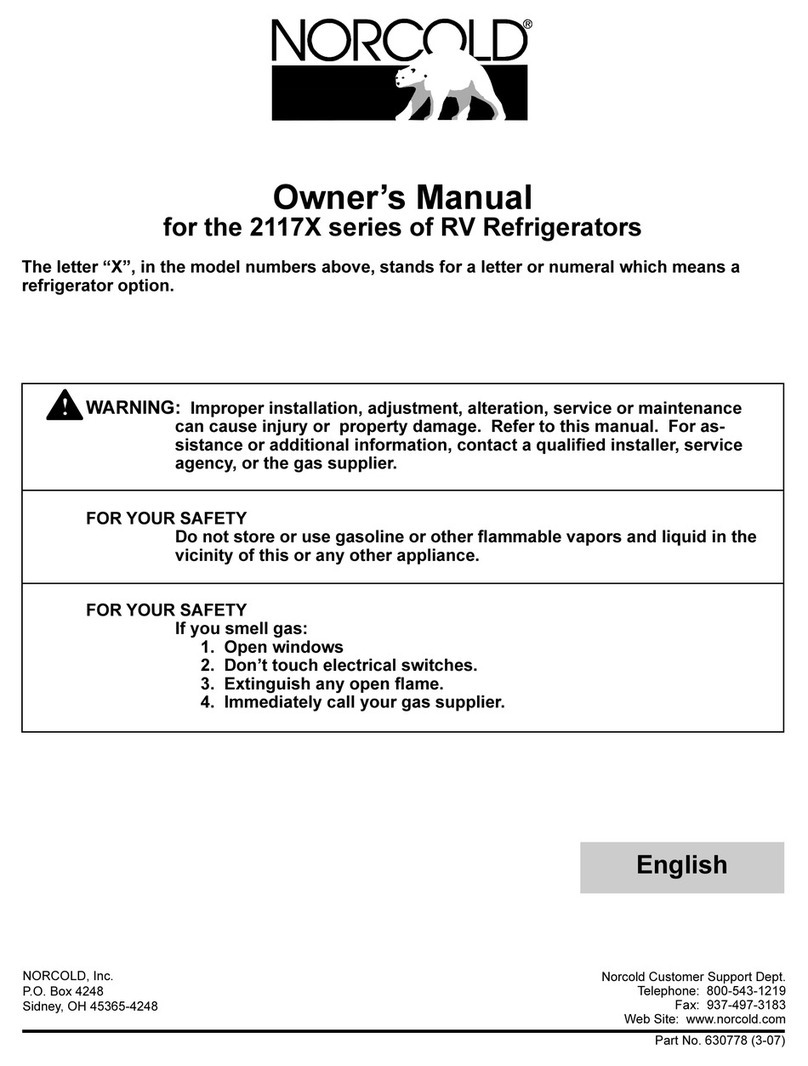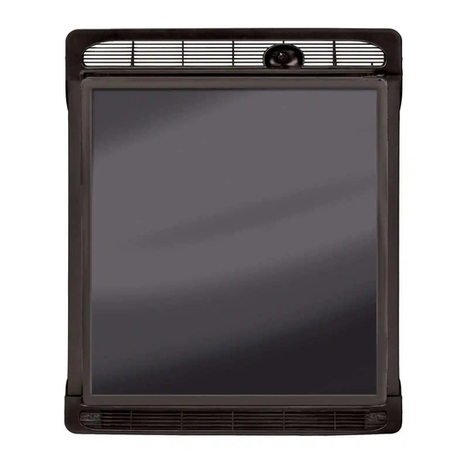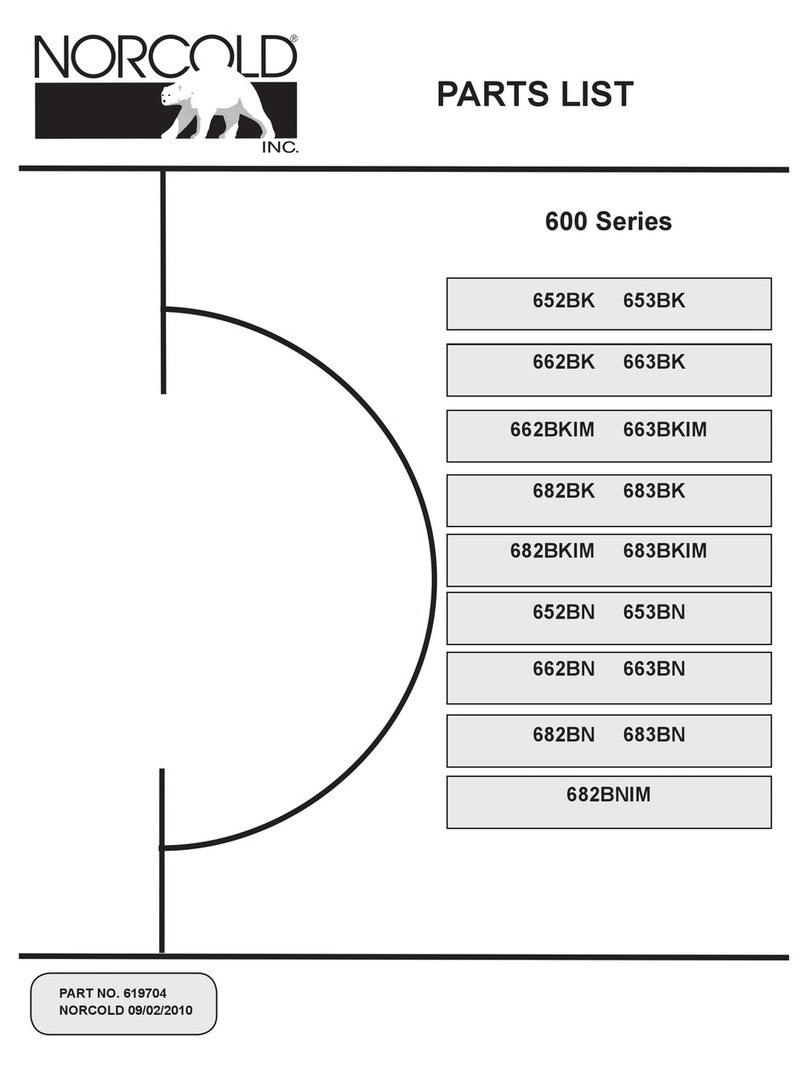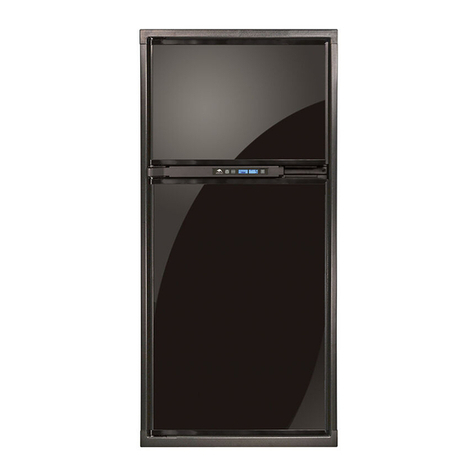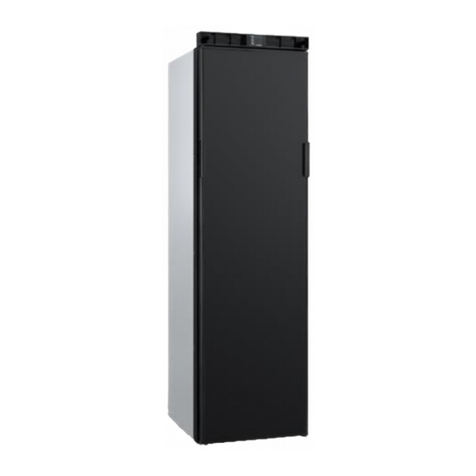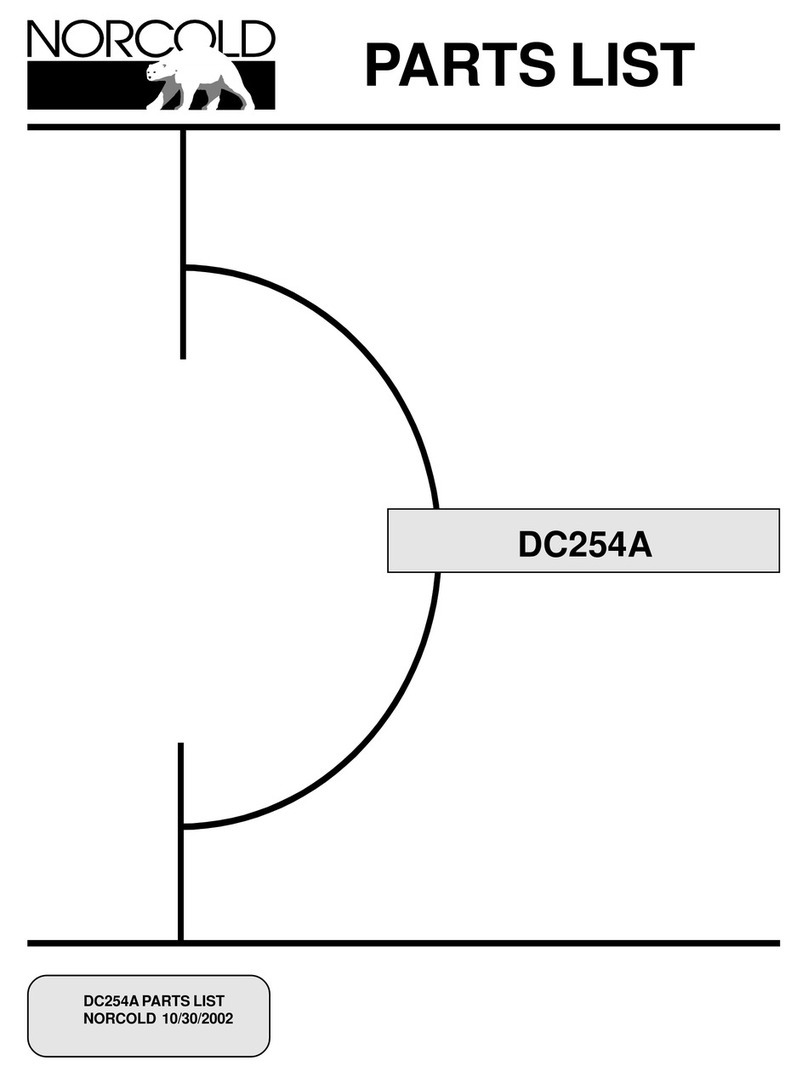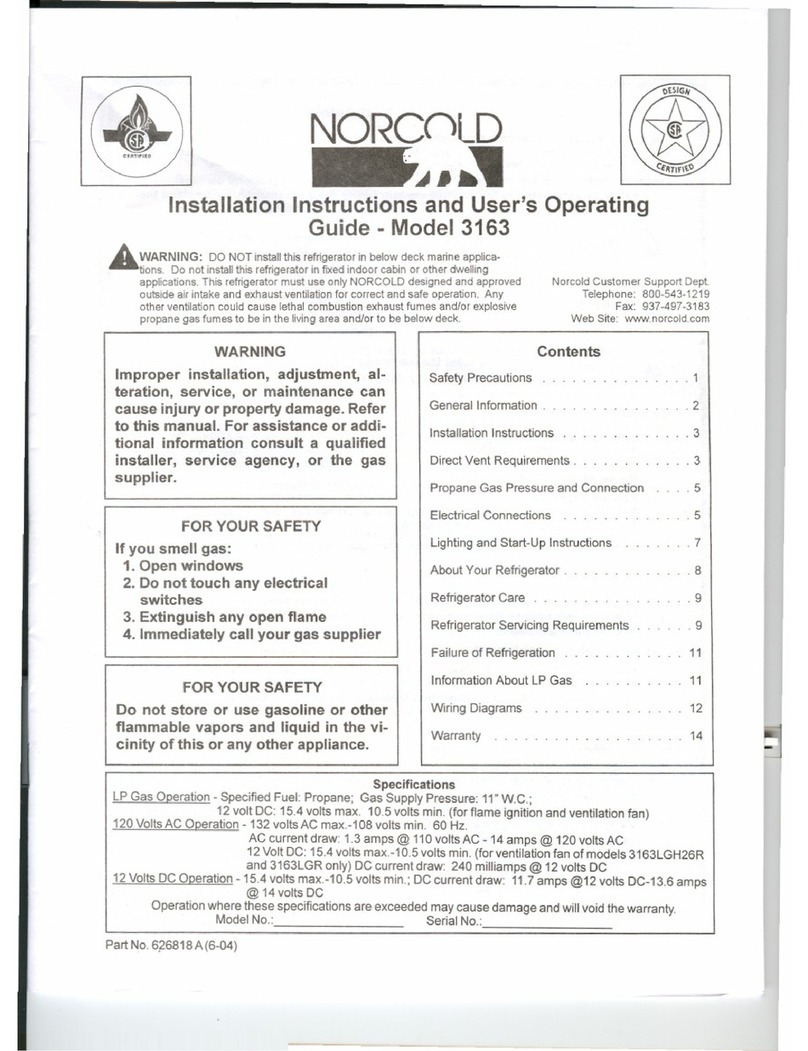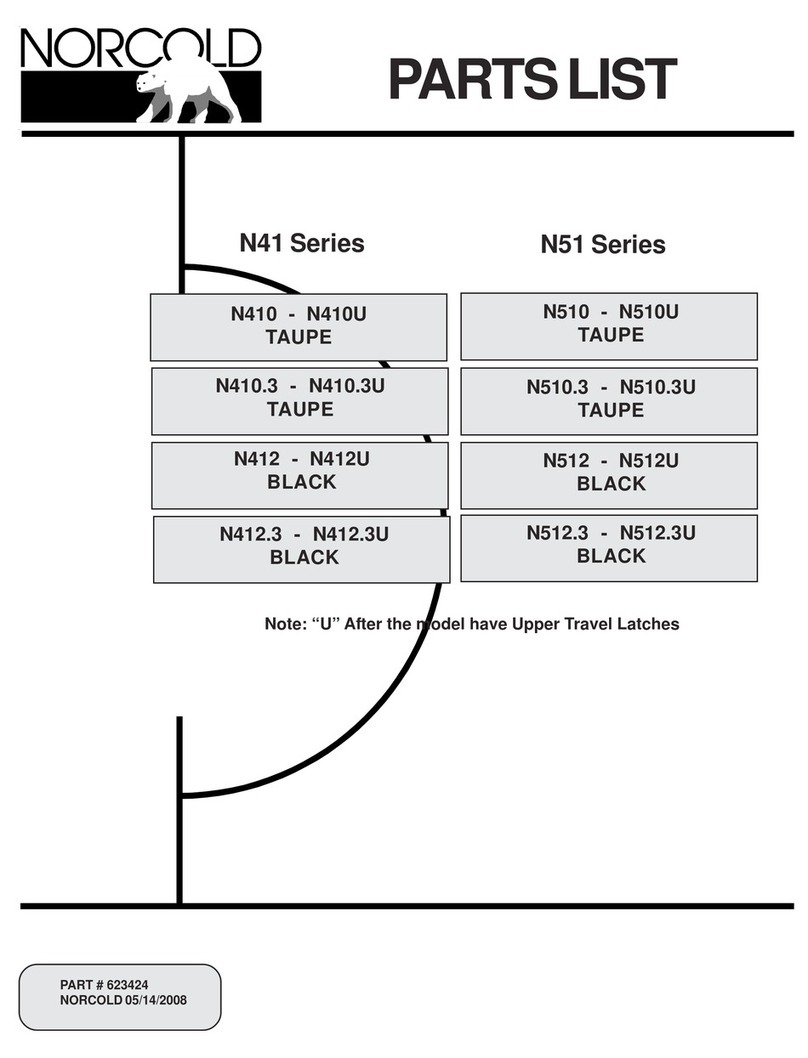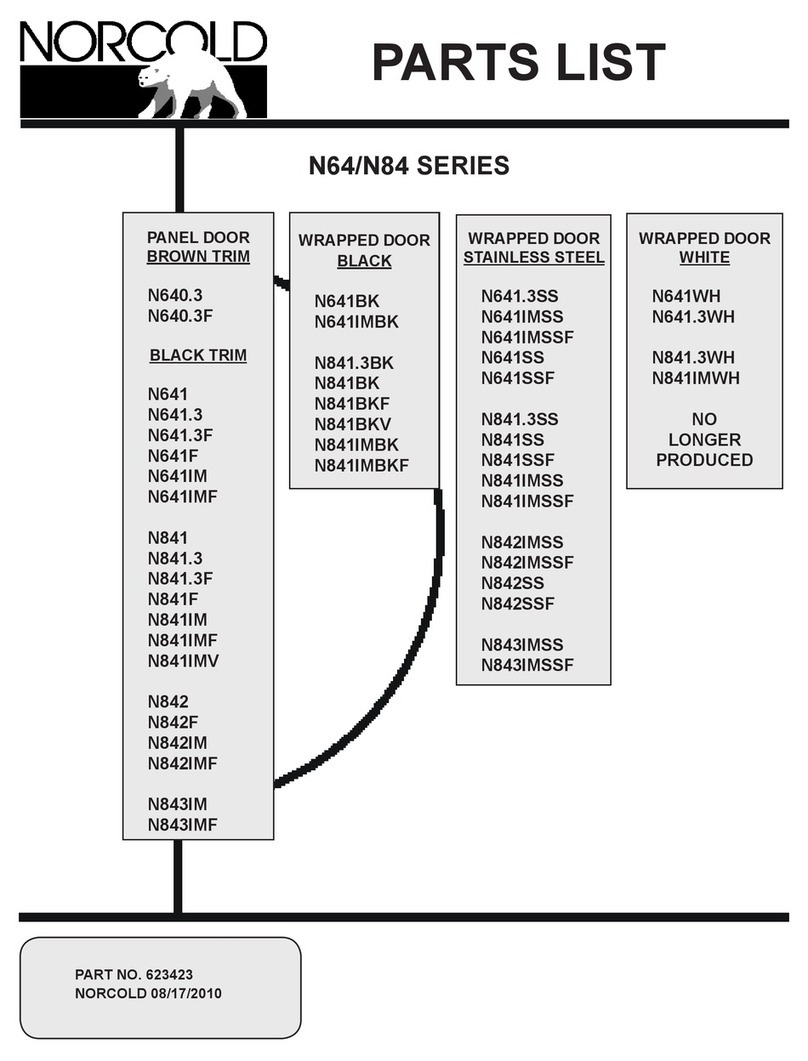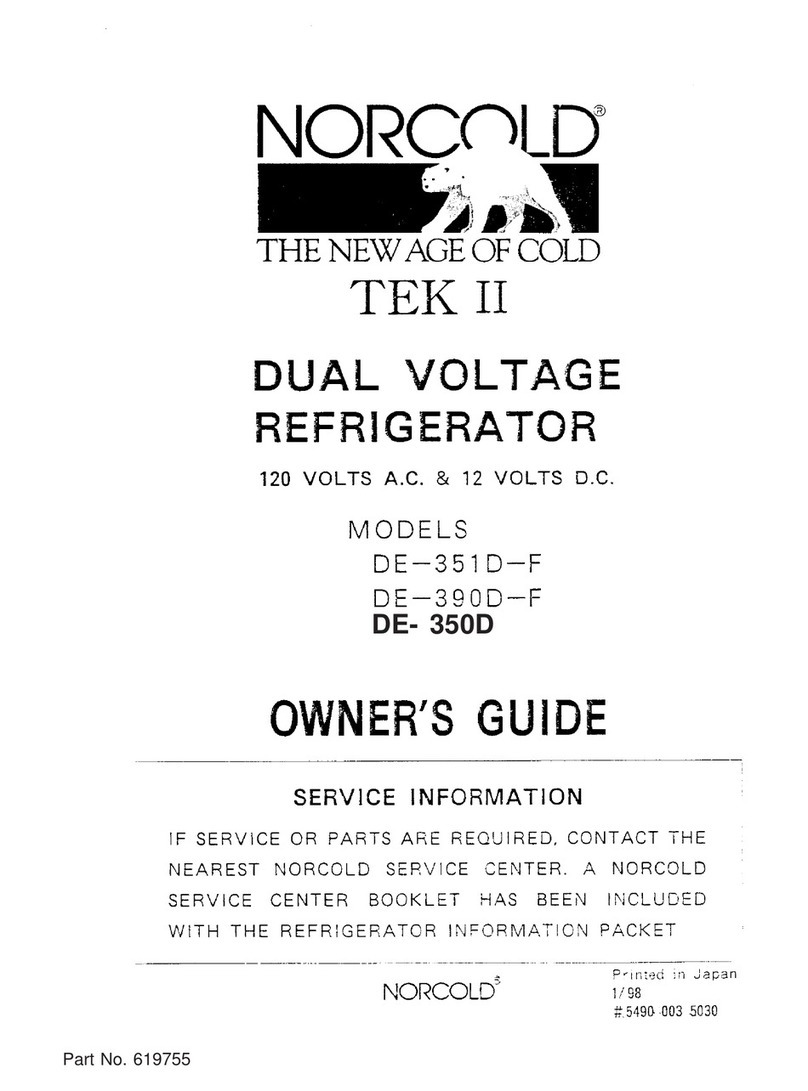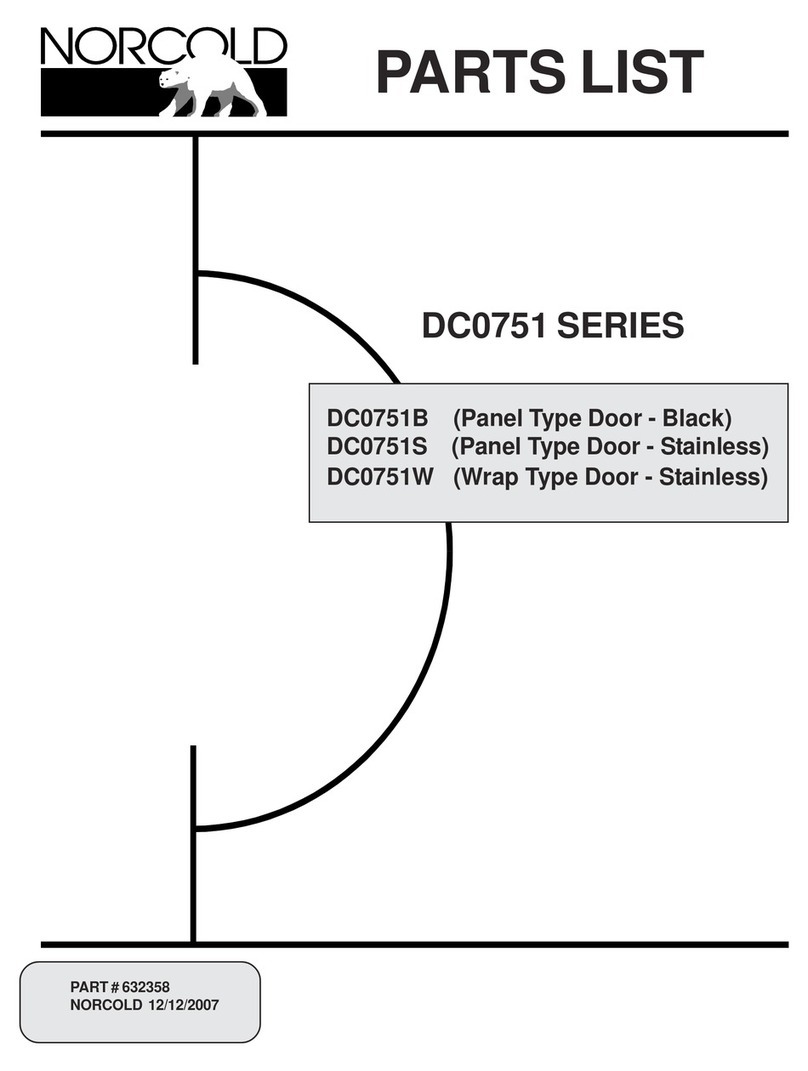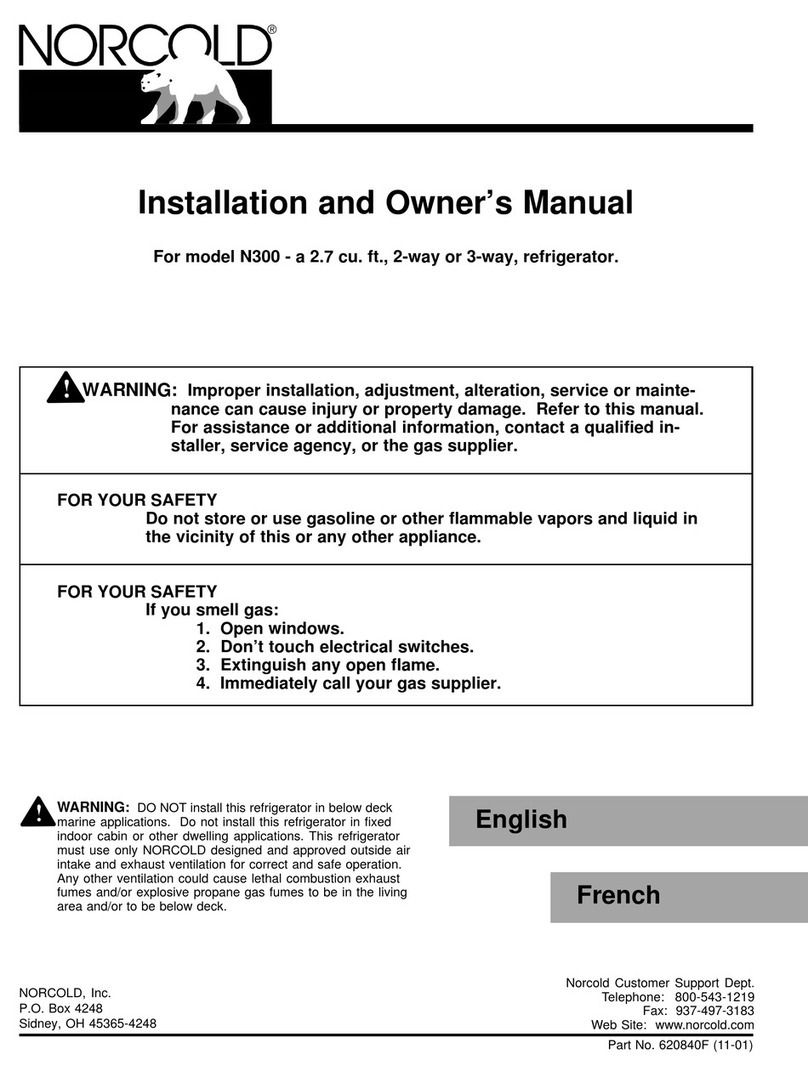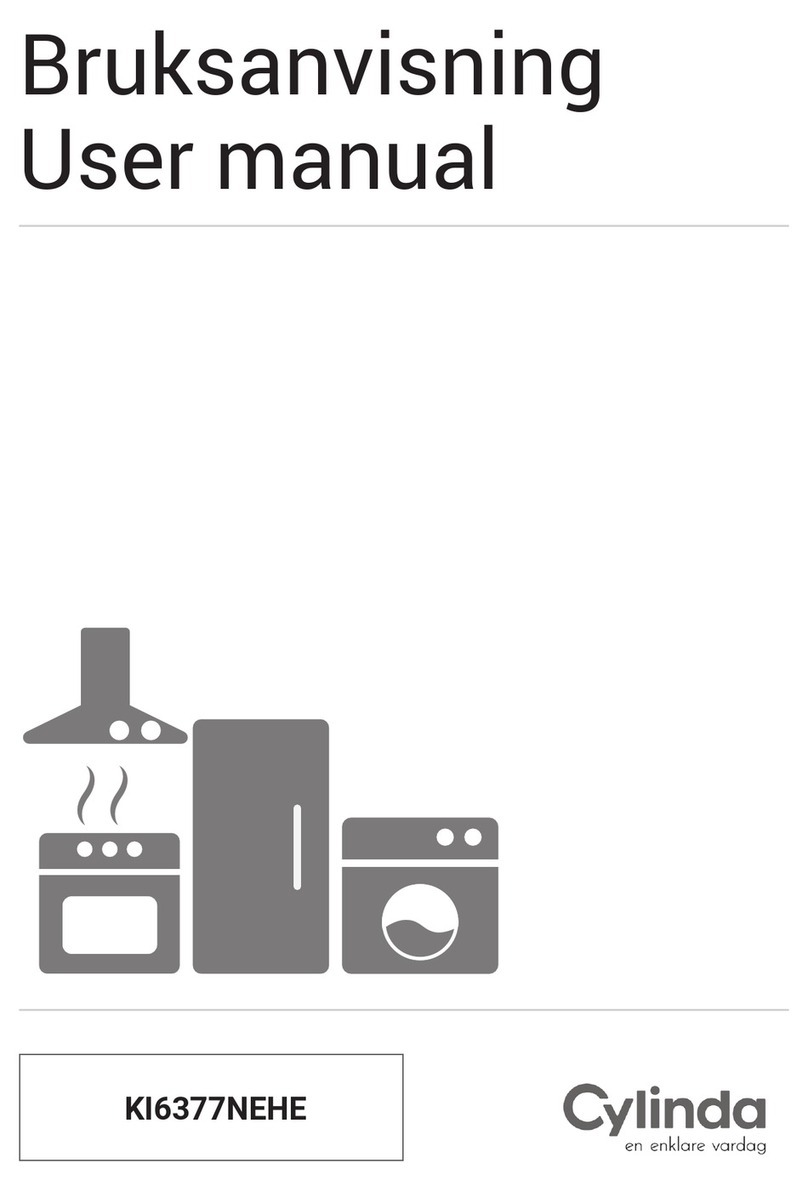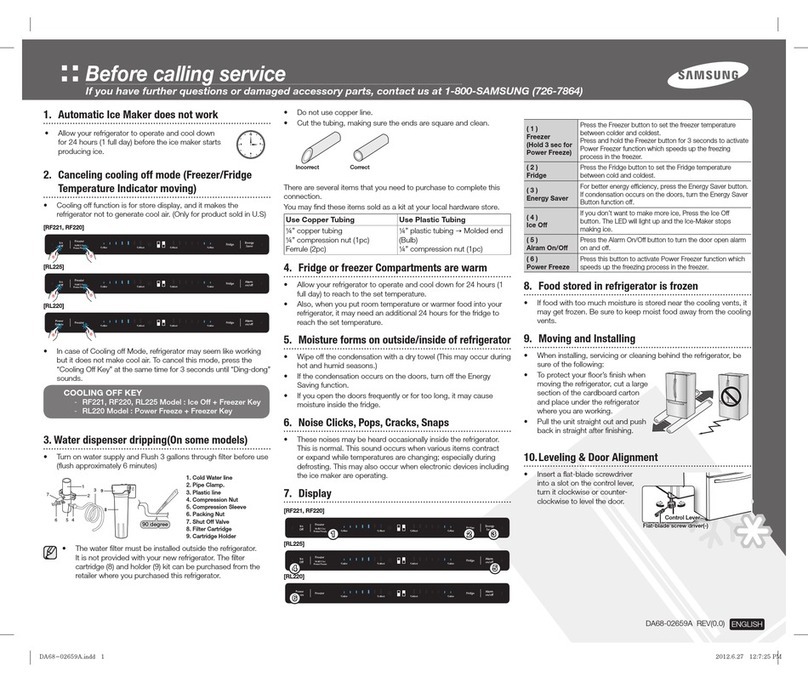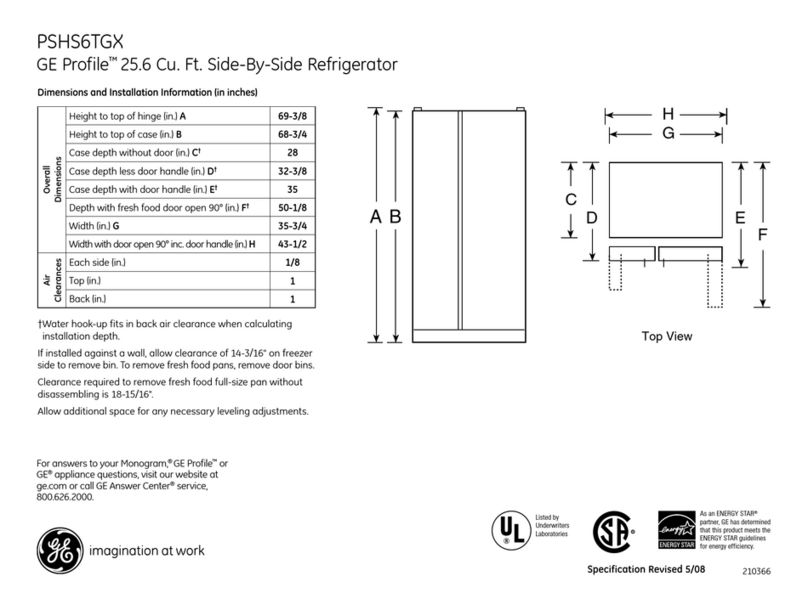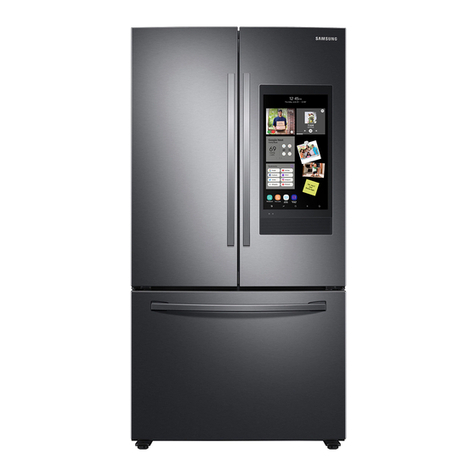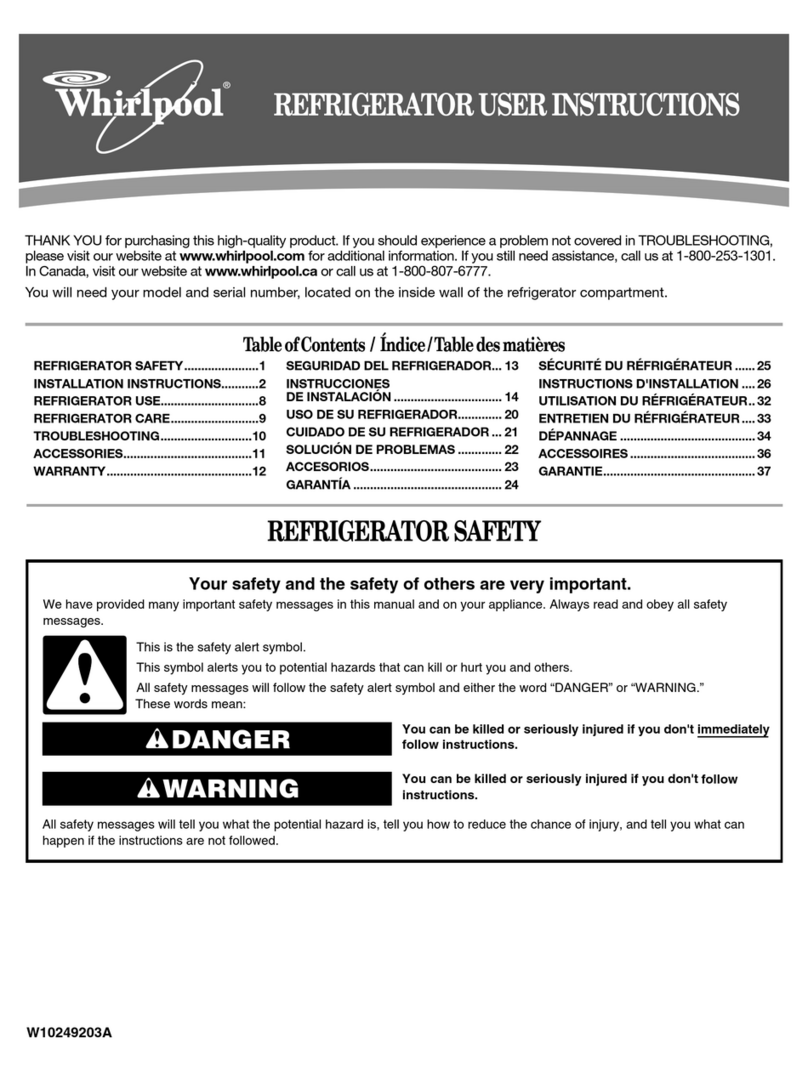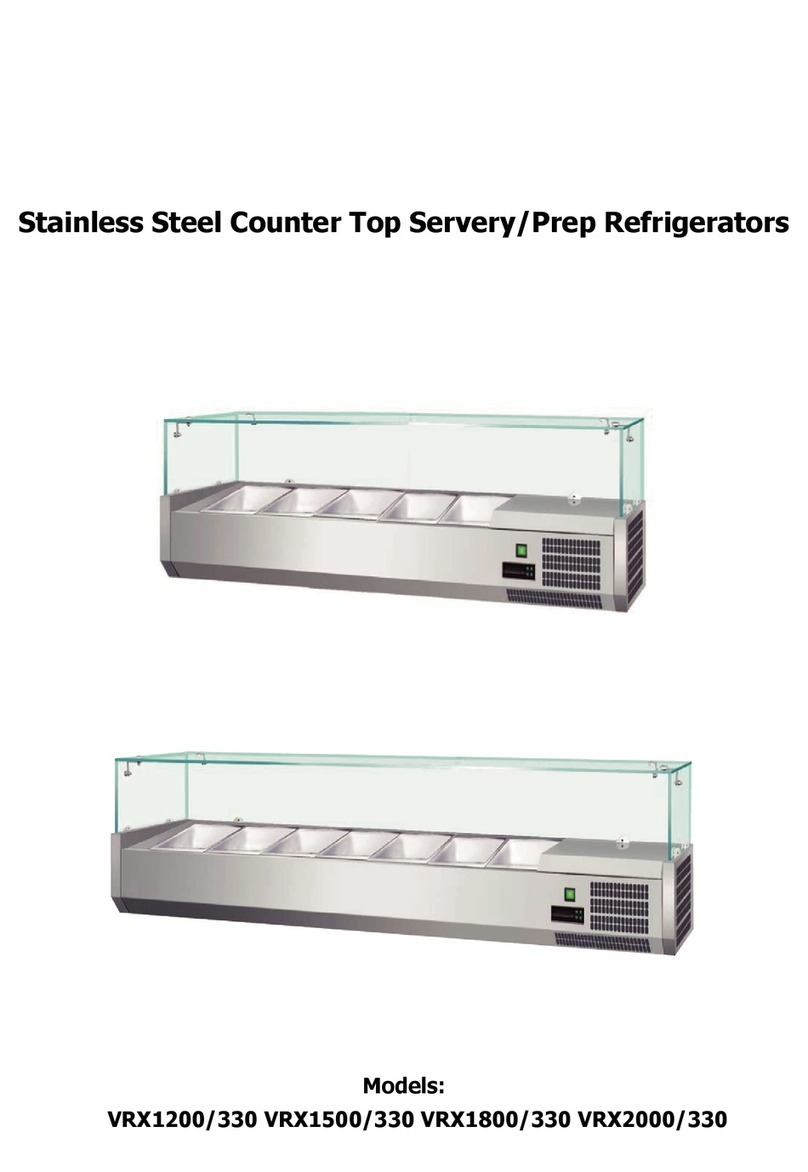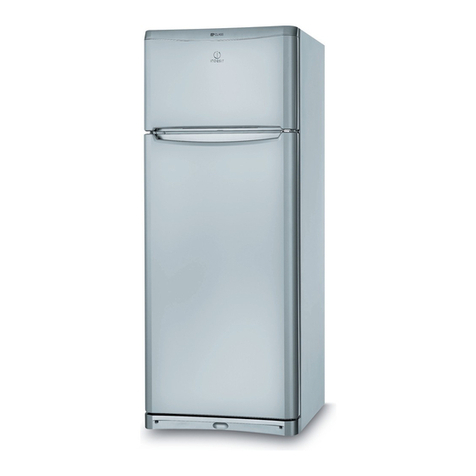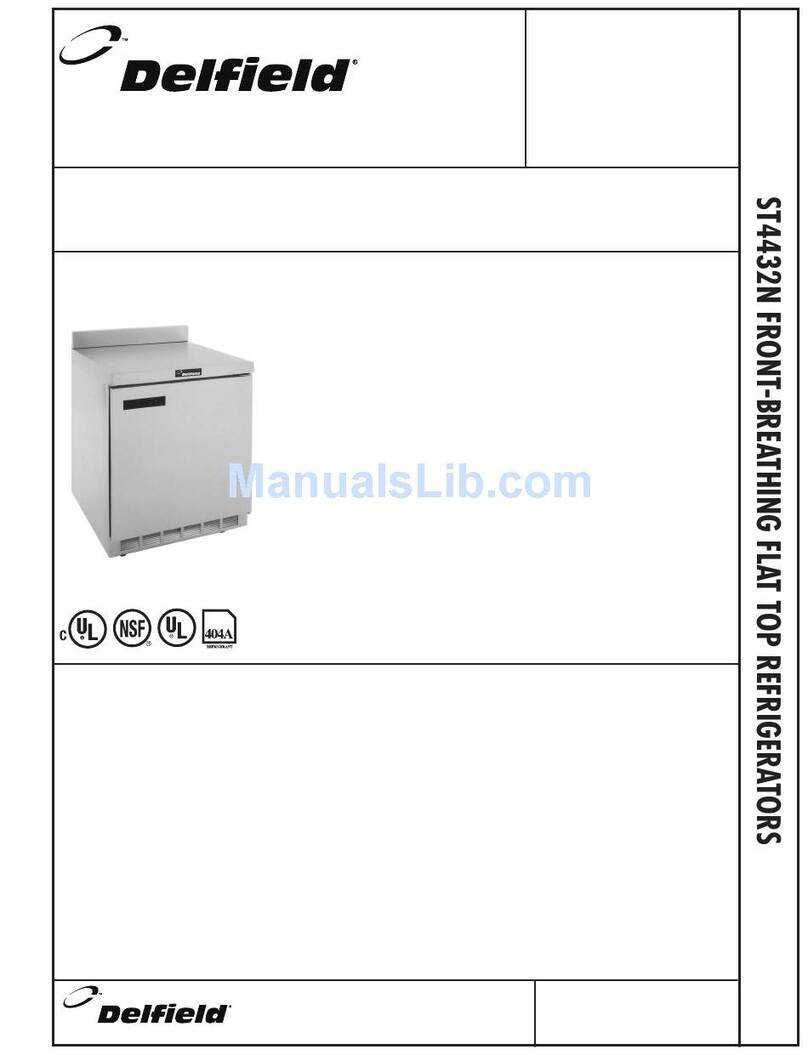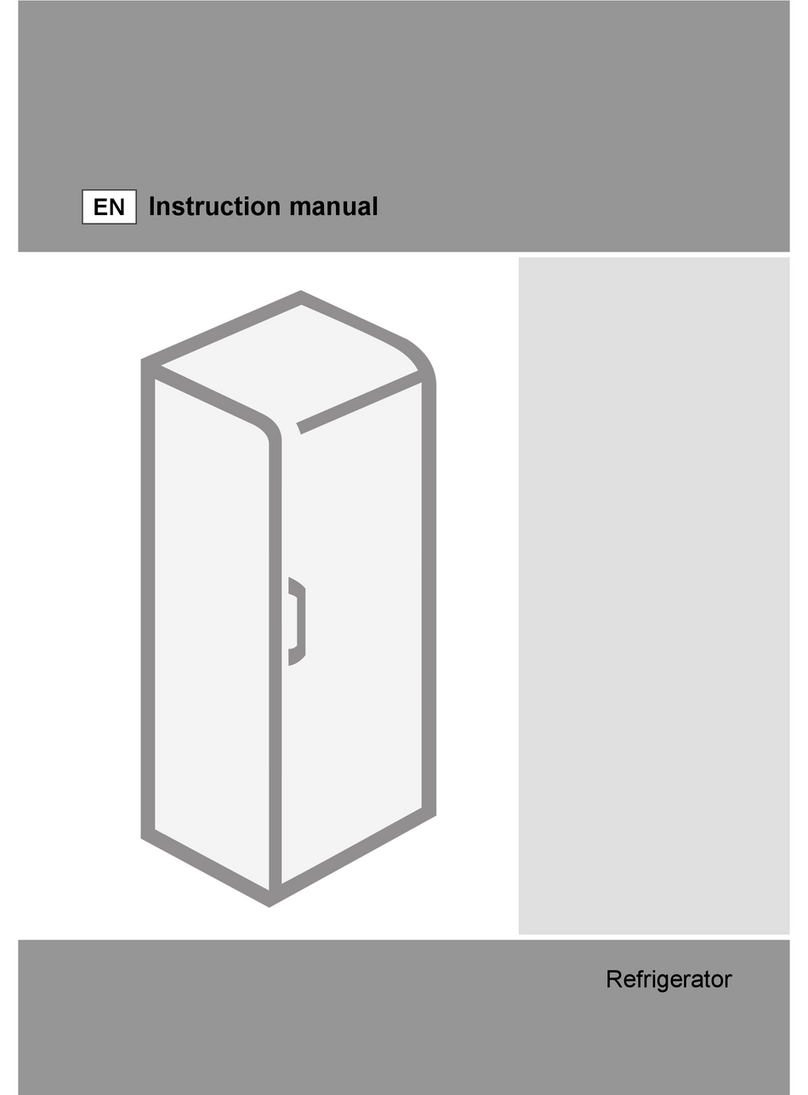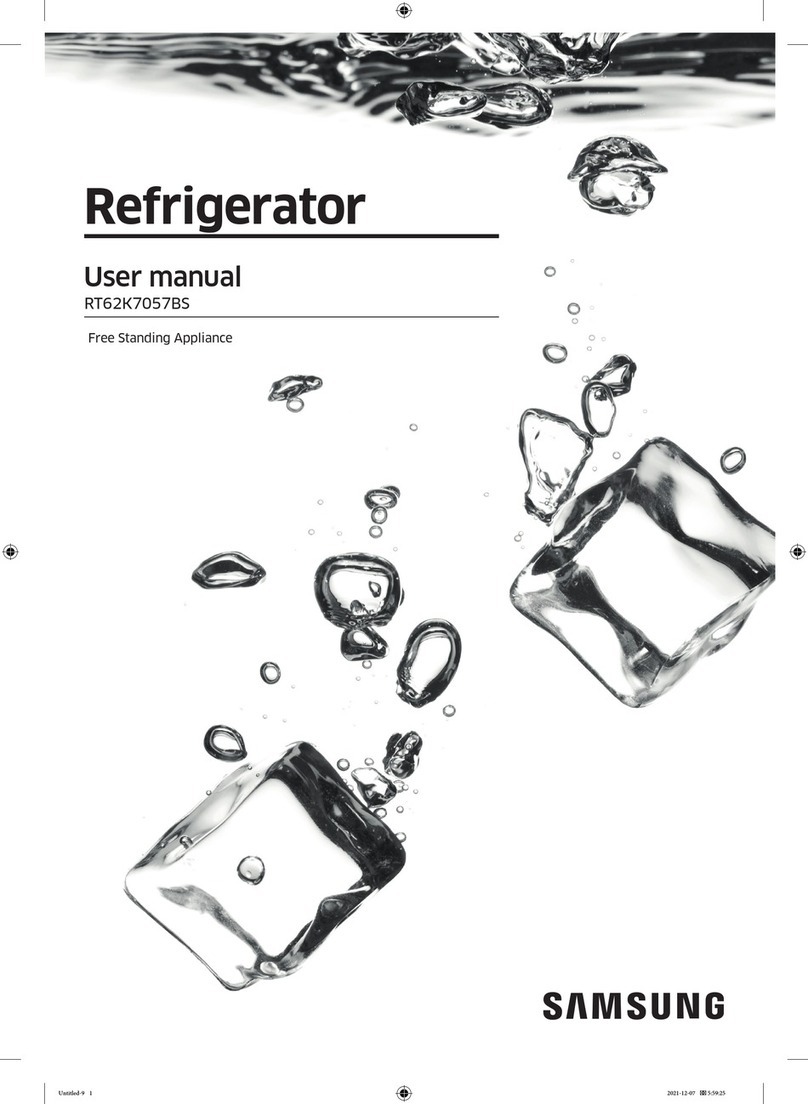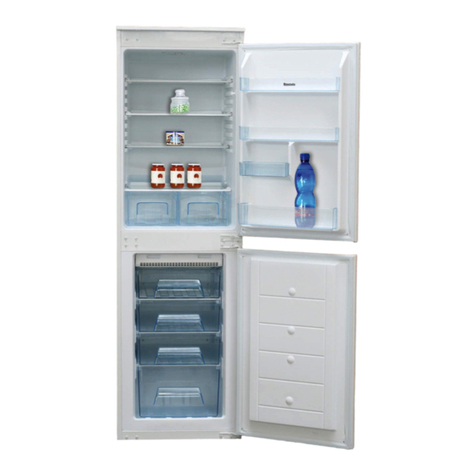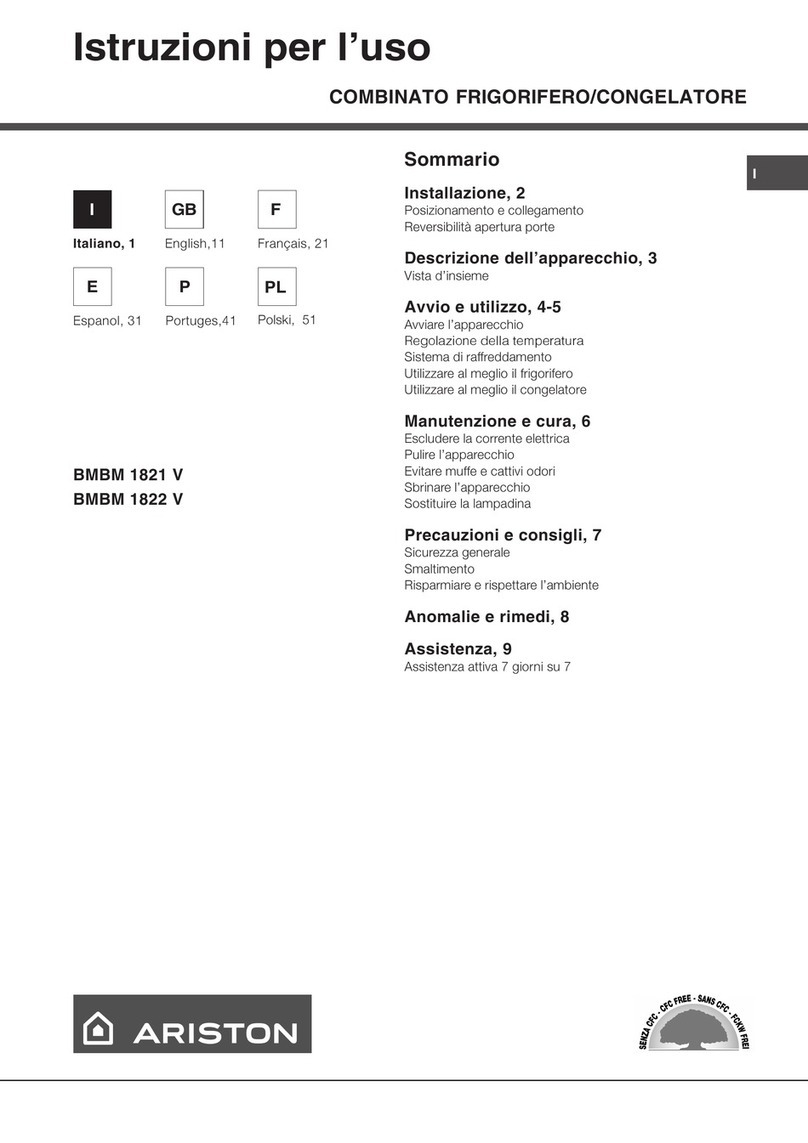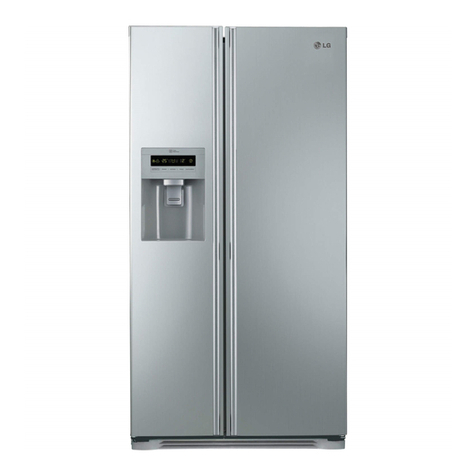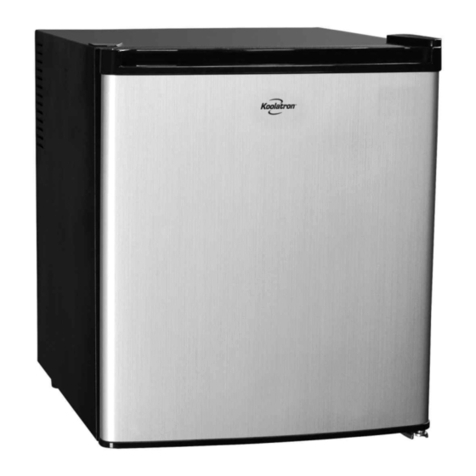
5
operated on DC power only when the vehicle engine is running and your camper battery
has been maintained in a fully charged condition.
CAUTION: There are varying opinions as to whether it is appropriate and/or safe to operate an
RV refrigerator on propane while towing a camper/trailer. Some feel it is perfectly safe.
However, keep in mind that in the event of a traffic or other collision, should a gas line break and
be exposed to a spark or fire, a propane gas explosion is very likely to occur. Further, you should
never operate a propane gas refrigerator with an open flame present while re-fueling your tow
vehicle at a gas station. Also, it is illegal in most (if not all) states to operate an RV refrigerator
on propane gas while travelling through a tunnel. For safety reasons, when not using propane
gas, it is advisable to turn off the propane storage tank valve. Finally, some RV owners find that
they have no problem keeping their refrigerator contents adequately cool while towing without
the necessity of using propane or battery power. As long as the refrigerator has been properly
cooled before towing the RV, if you keep the refrigerator door closed as much as possible and
the refrigerator properly packed (including possibly adding frozen foods or a small ice pack), the
temperature should be adequately maintained while enroute to your next destination.
FINAL COMMENTS
A gas absorption refrigerator is not designed to operate in freezing temperatures. If not
equipped for low temperature operation, and the refrigerator is exposed to temperatures of 32°
F, or lower for an extended period of time, the refrigerator operation may be disrupted. The
refrigerator operation will resume when the cooling system of the refrigerator warms
sufficiently. Also, whenever the outside air temperature is below 50° F, the refrigerator may have
a tendency to freeze food at the colder temperature settings. To reduce the tendency to freeze
food, you can (a) turn the Propane Gas Control knob (294) to the “LO” position, (b) keep the
refrigerator full of previously cooled items, and (c) place foods that are more likely to freeze on
the lower shelf.
When you operate the refrigerator on propane gas at altitudes higher than 5000 feet above sea
level, you may experience reduced cooling performance AND you may experience burner
outages. To avoid these possible problems, Norcold recommends that you operate the
refrigerator on AC when at altitudes higher than 5500 feet above sea level. Obviously, this is not
always possible, but it is helpful to be aware of why you may experience a decrease in refrigerator
operation or temperature at higher elevations.
(by @Bayliss 07-26-2019)







